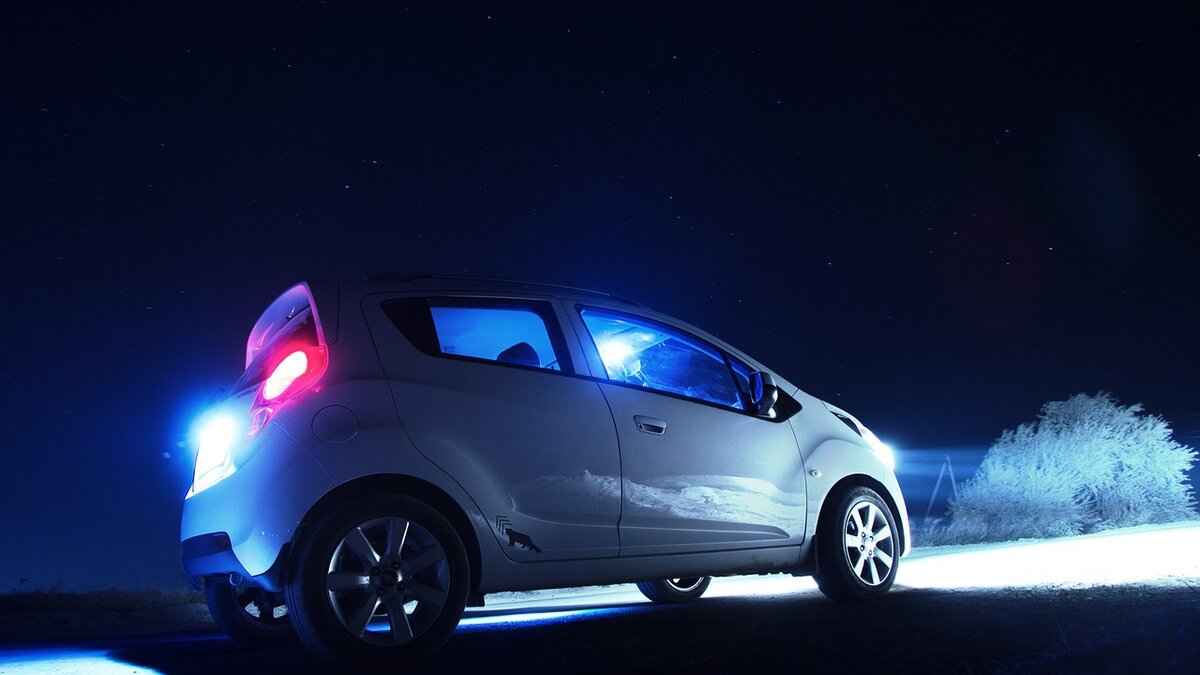This article delves into the essential factors for determining the correct length of windshield wipers for your vehicle. Properly sized wipers ensure optimal performance and safety, especially during adverse weather conditions.
Why is Choosing the Right Windshield Wiper Length Important?
Selecting the appropriate windshield wiper length is crucial for effective visibility and safety. Incorrect sizes can lead to various issues such as:
- Streaking: Wipers that are too short may not cover the entire windshield, leaving streaks that obstruct vision.
- Inadequate Coverage: Wipers that are too long can extend beyond the windshield, causing unnecessary wear or even damaging the glass.
- Reduced Lifespan: Mismatched sizes can lead to increased friction and wear, shortening the lifespan of your wipers.
How to Measure Your Windshield Wiper Length?
Accurate measurement of your windshield wiper length is vital for replacement. Here’s a simple method to ensure precision:
- Gather Your Tools: You will need a tape measure and a notepad.
- Locate the Pivot Point: Identify the point where the wiper arm pivots on your vehicle.
- Measure the Blade: Use the tape measure to determine the length from the pivot point to the end of the blade. Make sure to measure in a straight line for accuracy.
What Are the Standard Wiper Blade Sizes?
Windshield wiper blades come in various sizes, typically ranging from 14 inches to 28 inches. Here’s a quick reference for common sizes:
| Vehicle Type | Driver Side Wiper (inches) | Passenger Side Wiper (inches) |
|---|---|---|
| Compact Cars | 16 | 14 |
| SUVs | 22 | 20 |
| Trucks | 24 | 22 |
How Often Should You Replace Your Windshield Wipers?
Regular maintenance is essential for optimal wiper performance. It’s generally recommended to replace your windshield wipers every 6 to 12 months, depending on usage and environmental conditions. Signs that your wipers need replacement include:
- Visible Damage: Cracks or tears on the rubber blade.
- Noise: Squeaking or chattering sounds when in use.
- Streaking: Inability to clear water effectively.
Where to Buy Replacement Wipers?
Replacement windshield wipers can be purchased from various sources, including:
- Auto Parts Stores: Local retailers often have a wide selection.
- Online Retailers: Websites like Amazon or specialized auto parts sites offer convenience and competitive pricing.
- Dealerships: For OEM parts, visiting your car’s dealership ensures you get the right fit.
By understanding the importance of selecting the correct length for your windshield wipers and knowing how to measure accurately, you can enhance your vehicle’s safety and performance in all weather conditions.

Why is Choosing the Right Windshield Wiper Length Important?
Choosing the right windshield wiper length is not just a matter of convenience; it is a critical factor that directly impacts your driving safety. When it comes to visibility during adverse weather conditions, effective windshield wipers play a pivotal role. Using the wrong size can lead to a host of issues, including streaking, inadequate coverage, and even potential damage to your windshield.
When wipers are too short, they may leave significant areas of the windshield uncovered, leading to blind spots that can be dangerous while driving. Conversely, wipers that are too long can extend beyond the windshield, causing unnecessary wear and tear and possibly damaging the vehicle’s body or the wiper mechanism itself. Therefore, understanding the importance of selecting the correct wiper length is essential for maintaining both visibility and the integrity of your vehicle.
- Streaking: Wipers that do not fit properly can leave streaks on the windshield, obstructing your view.
- Inadequate Coverage: Short wipers may not cover the entire windshield, leaving areas that can impair visibility during rain or snow.
- Mechanical Damage: Wipers that are too long can cause damage to other components, leading to costly repairs.
In addition to these risks, incorrect wiper sizes can also lead to increased wear and tear on the wiper blades themselves. Worn-out blades can become less effective over time, further compromising visibility. This situation can be particularly perilous during heavy rain or snow when clear visibility is crucial.
To ensure you select the correct windshield wiper length, start by consulting your vehicle’s manual, which typically provides the recommended sizes for both the driver and passenger sides. If the manual is not available, you can use a tape measure to measure the length from the pivot point to the end of the blade. This method ensures accuracy and helps you avoid common pitfalls associated with incorrect sizing.
Additionally, many auto parts stores offer wiper blade size guides or can assist you in measuring your existing blades. It’s advisable to replace both wipers at the same time to maintain balanced performance. Remember, consistent maintenance of your windshield wipers is key to ensuring they function effectively.
In summary, selecting the appropriate windshield wiper length is a vital aspect of vehicle maintenance that should not be overlooked. The right size ensures optimal performance, enhances safety, and contributes to the longevity of your vehicle. Always prioritize visibility and safety by choosing the correct wiper length for your needs.

How to Measure Your Windshield Wiper Length?
When it comes to maintaining your vehicle, one of the key components that often gets overlooked is the windshield wiper. Properly functioning wipers are crucial for ensuring visibility during rain, snow, or other adverse weather conditions. One of the first steps in replacing your windshield wipers is to determine the correct length for your specific vehicle. This article will guide you through the process of measuring your windshield wiper length accurately.
Measuring your windshield wiper length accurately is essential for replacement. Follow these steps to ensure you get the right size:
- Gather Your Tools: You will need a tape measure or a ruler. Having a pen and paper handy for jotting down measurements can also be helpful.
- Locate the Pivot Point: The pivot point is where the wiper arm attaches to the vehicle. This is typically at the base of the windshield. Make sure your wipers are in the resting position for easier measurement.
- Measure the Blade Length: Use the tape measure to find the distance from the pivot point to the end of the wiper blade. Ensure that you measure along the curve of the blade for the most accurate reading.
- Double-Check Your Measurement: It’s always a good idea to measure twice to confirm accuracy. If you have multiple wiper blades (front and rear), be sure to measure each one individually as they may differ in size.
- Record Your Findings: Write down the measurements for future reference. This will help you when you go to purchase new wiper blades.
It’s important to note that while measuring the wiper length is crucial, you should also consider the type of wiper blade that is best suited for your vehicle. There are various styles available, including conventional, beam, and hybrid blades. Each type has its benefits and may affect how well they fit your windshield.
If you’re unable to measure the wipers directly, there are alternative methods:
- Consult Your Vehicle’s Manual: Most vehicle manuals will specify the correct wiper blade sizes.
- Check Online Resources: Many auto parts websites allow you to input your vehicle’s make and model to find the compatible wiper sizes.
- Visit an Auto Parts Store: Staff at local auto parts stores can often assist you in finding the right size based on your vehicle’s specifications.
In summary, measuring your windshield wiper length accurately is a straightforward but essential task that can significantly impact your driving safety. By following the steps outlined above, you can ensure that you select the right size wiper blades for your vehicle, enhancing visibility and performance during inclement weather.
Frequently Asked Questions
- What happens if I choose the wrong wiper blade length?
Choosing the wrong wiper blade length can lead to poor visibility. Imagine driving in a downpour with streaks obstructing your view! It can also cause damage to your windshield or the wiper mechanism itself. You definitely don’t want that, right?
- How do I know if my wiper blades need replacing?
If you notice streaks, skipping, or unusual noises when using your wipers, it’s time for a change. Think of it like a pair of old shoes; if they’re not doing their job, it’s time to invest in a new pair!
- Can I mix different lengths of wiper blades?
Mixing different lengths can lead to uneven wiping and may hinder performance. It’s best to stick to the same length for both driver and passenger sides for optimal coverage. Just like a well-matched outfit, your wipers should complement each other!
- Where can I find the right size for my car’s wiper blades?
You can find the correct size in your vehicle’s manual, or by checking online resources or auto parts stores. Many websites even have tools to help you find the right fit. It’s like having a personal shopper for your car!















